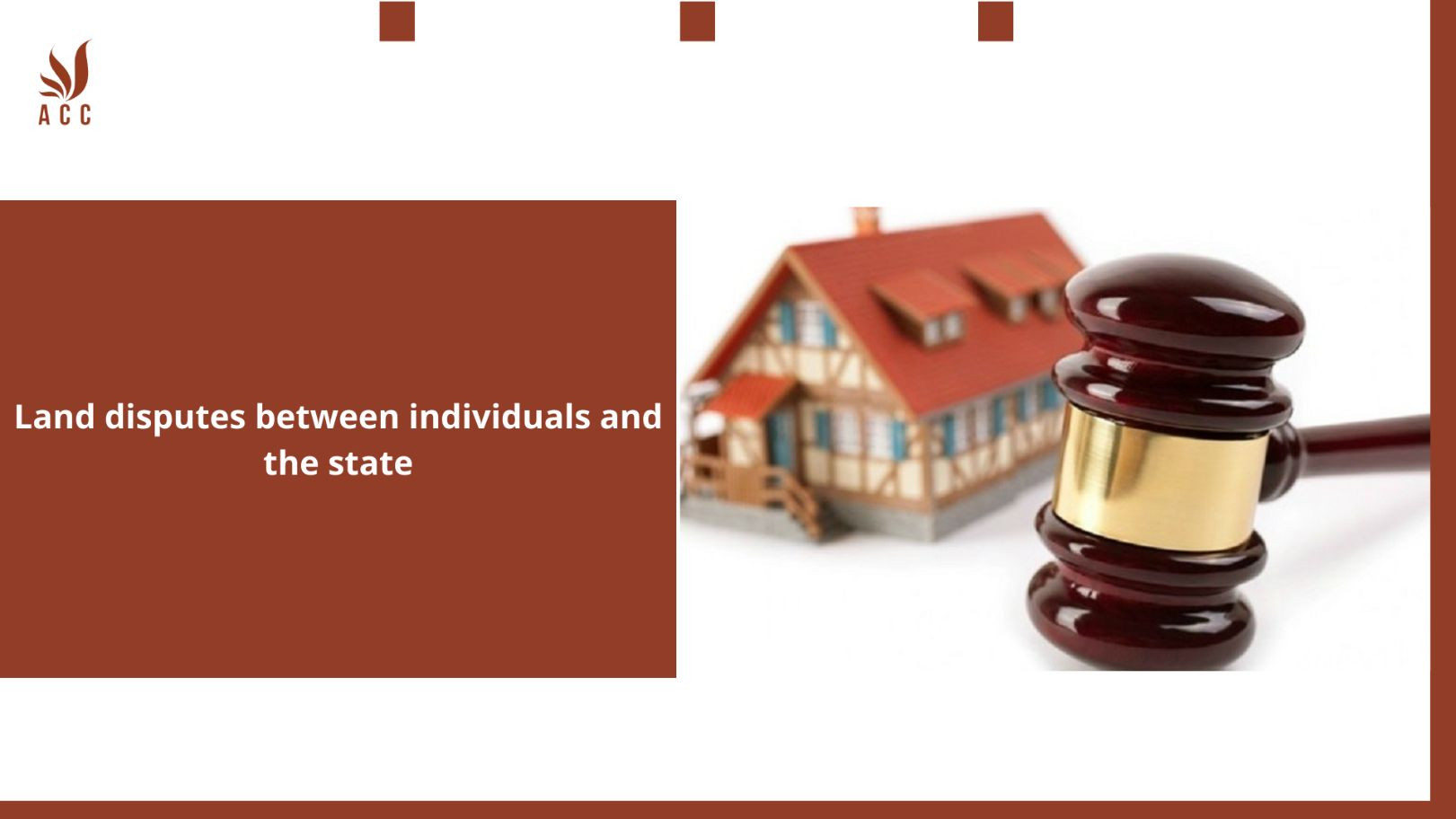Land disputes between individuals and the state can be particularly complex, as they involve conflicts over land ownership, land use regulations, and the exercise of government authority.

I. These disputes can take various forms and arise from several circumstances:
-
Eminent Domain: Eminent domain allows the government to acquire private land for public use, such as infrastructure projects (roads, bridges, public buildings). Disputes may arise over the necessity of acquisition, the valuation of the property, and the fairness of compensation offered to the landowner.
-
Zoning and Land Use Regulations: Landowners may disagree with the state or local government's land use regulations, zoning ordinances, or building codes that restrict how the land can be used or developed.
-
Property Rights and Takings: Land disputes can result from alleged takings by the government, which occur when government actions or regulations diminish the value or intended use of private property.
-
Environmental Regulations: Disputes can stem from government environmental regulations that impact land use, development, or conservation, particularly when landowners believe these regulations infringe on their property rights.
-
Land Title and Ownership: Claims related to land titles, land deeds, or property ownership disputes can involve government entities when property records and titles are unclear or disputed.
-
Compulsory Purchase or Expropriation: In some regions, the state may have the authority to expropriate or purchase land for various reasons, and disputes can emerge over the process, compensation, or necessity of such actions.
Resolving land disputes between individuals and the state often involves legal proceedings, and the specific process can vary based on jurisdiction and the nature of the dispute.
II. Here are common steps and considerations:
-
Legal Representation: Seek legal representation from an attorney experienced in property and land law, who can guide you through the process.
-
Review Land Records: Carefully review all relevant land records, titles, deeds, and regulations to establish the factual and legal basis for your claim.
-
Negotiation and Mediation: Attempt to resolve the dispute through negotiation or mediation before pursuing litigation. Some governments offer alternative dispute resolution (ADR) options.
-
Administrative Appeals: Depending on the issue, consider filing administrative appeals or grievances with the relevant government agency before going to court.
-
Litigation: If other methods fail, pursue litigation in the appropriate court to address the dispute and seek a resolution.
-
Expert Witnesses: In some cases, expert witnesses such as appraisers, surveyors, or environmental specialists may be called upon to provide their expertise.
Land disputes with the state can be protracted and challenging, given the resources and authority the state possesses. It's essential to consult with legal professionals and have a clear understanding of relevant property laws and regulations in your jurisdiction.
III. When using ACC Law Firm's land-related services, entrepreneurs will receive
When using ACC Law Firm's land-related services, entrepreneurs will receive expert advice and assistance in navigating various legal aspects of land ownership and transactions. This includes guidance in property acquisitions, leases, zoning regulations, land use planning, and any other land-related legal matters. ACC Law Firm's team of experienced attorneys will provide personalized support to entrepreneurs, ensuring compliance with applicable laws and regulations, protecting property rights, and optimizing the value of their land investments.
IV. Q&A
Q1: What can be the causes of land disputes between individuals and the state?
A1: Land disputes between individuals and the state can arise from issues such as land acquisition for public projects, property rights disputes, zoning changes, land use regulations, and disagreements over land ownership, among other reasons.
Q2: How are land disputes between individuals and the state typically resolved?
A2: Land disputes between individuals and the state are often resolved through legal processes. The state may have established procedures and agencies responsible for addressing such disputes, and resolution methods can include negotiation, mediation, arbitration, or, when necessary, legal action in the court system.
Q3: What role do government agencies or legal authorities play in resolving land disputes with the state?
A3: Government agencies and legal authorities play a significant role in resolving land disputes with the state. They provide guidance, interpret and enforce relevant laws and regulations, oversee land acquisition processes, and facilitate negotiations between individuals and government entities.
Q4: How can individuals protect their rights in land disputes with the state?
A4: To protect their rights in land disputes with the state, individuals should seek legal advice, understand their legal rights, and document their case thoroughly. They should engage in negotiations or alternative dispute resolution methods and, if necessary, be prepared to initiate legal proceedings to protect their interests.
Resolving land disputes with the state can be complex, and it's essential for individuals to be informed about their rights and the legal processes involved. Consulting with legal professionals who are familiar with land and property laws is advisable.
Nội dung bài viết:






Bình luận